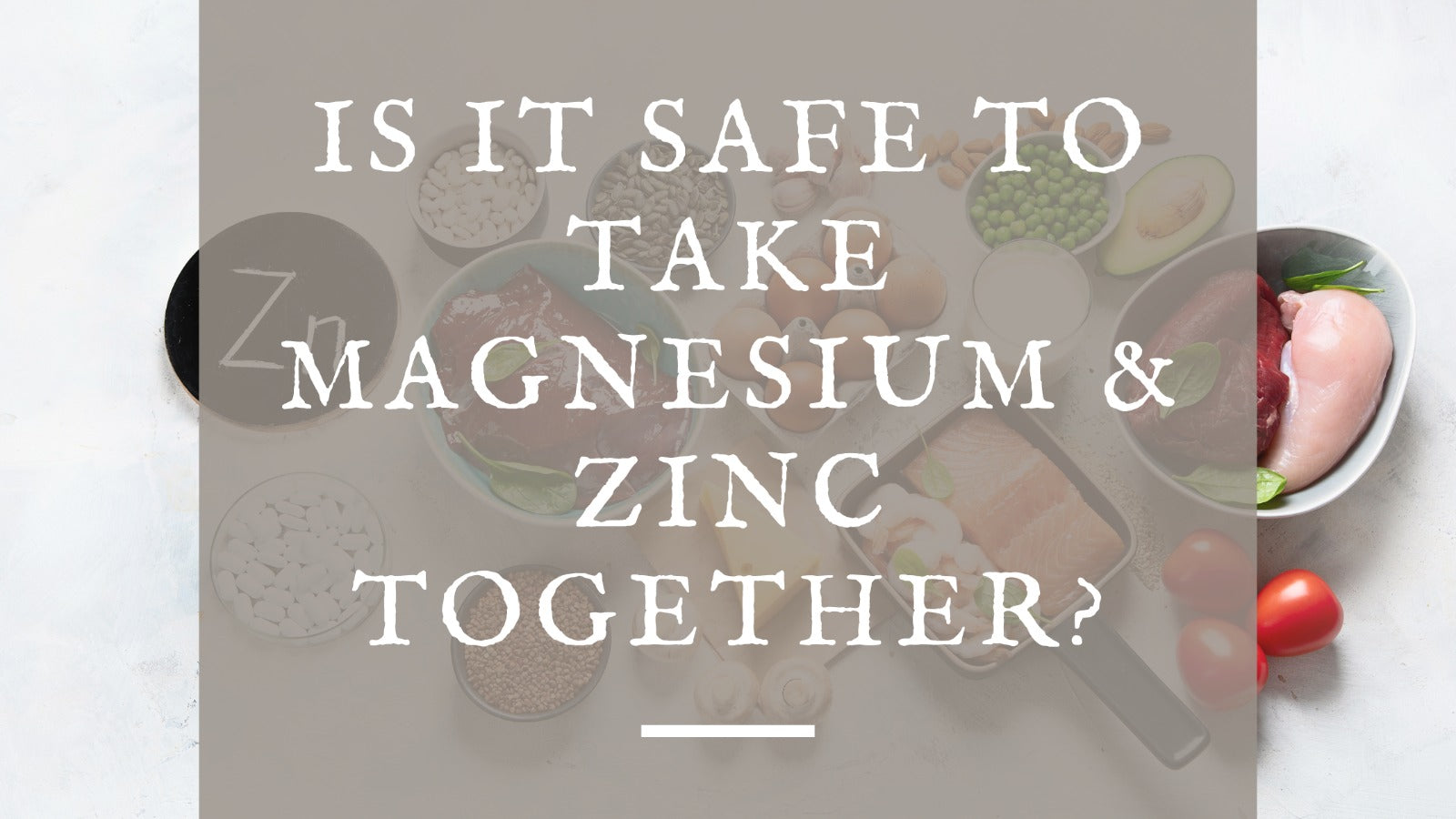
Is it Safe to Take Magnesium and Zinc Together?
Introduction
Magnesium and zinc are two essential minerals that play important roles in your health. From supporting strong bones and muscle function to boosting your immune system, they’re often included in multivitamins and supplements. But here’s a common question many people ask: Is it safe to take magnesium and zinc together?
Let’s explore what science says, how these minerals work, and the best way to take them for maximum benefits.
Table of Contents
What is Magnesium?
Magnesium is a mineral that helps regulate muscle contractions, nerve signals, blood sugar levels, and energy production. It’s found in foods like leafy greens, nuts, seeds, and whole grains.
What is Zinc?
Zinc is another vital mineral, known for supporting the immune system, wound healing, and DNA production. It’s commonly found in meat, shellfish, legumes, and seeds.
Why Magnesium and Zinc Are Important for Your Health
Both minerals are crucial for everyday health:
- Magnesium supports muscles, relaxation, and heart health.
- Zinc helps your immune system fight infections and supports skin health.
Can You Take Magnesium and Zinc Together?
Yes, it’s generally safe to take magnesium and zinc together. Many supplements combine them because they complement each other’s functions. However, they can compete for absorption if taken in very high doses.
Do Magnesium and Zinc Compete for Absorption?
Both minerals use similar pathways in your digestive system. If you take extremely high amounts of zinc, it may reduce magnesium absorption (and vice versa). But at normal doses, this isn’t usually a problem.
Best Time to Take Magnesium and Zinc
- Magnesium: Often recommended at night because it helps with relaxation and better sleep.
- Zinc: Best taken with food earlier in the day, as it can sometimes upset the stomach if taken alone.
If you’re combining them, taking them with a balanced meal works best.
Recommended Dosages for Magnesium and Zinc
- Magnesium: Around 300–400 mg per day for adults.
- Zinc: Around 8–11 mg per day for adults.
Always check the label of your supplement and avoid exceeding safe upper limits.
Benefits of Taking Magnesium and Zinc Together
- Improved energy and metabolism.
- Better immune system support.
- Enhanced muscle recovery and performance.
- Stronger bones and cardiovascular health.
Potential Side Effects and Risks
- Magnesium: Diarrhea, nausea, or cramping.
- Zinc: Nausea, copper deficiency, or reduced immune function if taken in excess.
Who Should Avoid Combining Magnesium and Zinc?
People with kidney disease (due to magnesium build-up).
Those taking certain medications (like antibiotics or diuretics).
Anyone with a health condition should consult a doctor before supplementing.
Tips to Improve Absorption
- Take supplements with food.
- Avoid taking them with too much caffeine or alcohol.
- Pair with Vitamin D for better overall mineral balance.
Magnesium, Zinc, and Vitamin D: A Powerful Trio
These three nutrients often work together. Magnesium helps activate Vitamin D in your body, while zinc supports immune health. Many people take a combined magnesium-zinc-vitamin D supplement for all-around support.
Should You Take a Magnesium-Zinc Supplement or Separate?
- Combined supplement: Convenient, good for general health.
- Separate supplements: Better if you need higher or more specific doses of one mineral.
Signs You May Be Deficient in Magnesium or Zinc
- Magnesium deficiency: Muscle cramps, fatigue, trouble sleeping.
- Zinc deficiency: Frequent colds, hair loss, slow wound healing.
Final Thoughts
Yes, you can safely take magnesium and zinc together — and in fact, many people benefit from doing so. Just stick to recommended doses, take them with food, and consider adding Vitamin D for extra support. If you have medical conditions or take medication, check with your doctor first.
FAQs
1. Is it better to take magnesium and zinc in the morning or at night?
Magnesium is often best at night for relaxation, while zinc can be taken earlier in the day with food.
2. Can I take magnesium, zinc, and vitamin D together?
Yes, these three nutrients work well together and are often combined in supplements.
3. What happens if I take too much magnesium or zinc?
Excess magnesium may cause diarrhea, while too much zinc can lower copper levels and affect immunity.
4. Do magnesium and zinc help with sleep?
Yes, magnesium can improve sleep quality, and zinc may also support better rest when combined.
5. Can I get enough magnesium and zinc from food alone?
Many people can with a balanced diet, but supplements help if you’re deficient or need extra support.